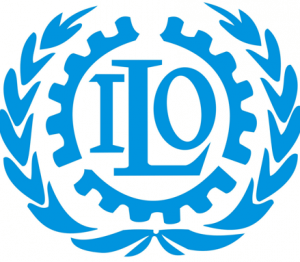 Mr Joshua Ansah, the Secretary-General of Trade Union Congress (TUC), has appealed to African governments yet to ratify the International Labour Organisation’s (ILO) Convention 188 to do so and integrate it into national law.
Mr Joshua Ansah, the Secretary-General of Trade Union Congress (TUC), has appealed to African governments yet to ratify the International Labour Organisation’s (ILO) Convention 188 to do so and integrate it into national law.
The ILO Convention C188, the Work in Fishing Convention, is to ensure fishers have decent conditions of work by setting minimum standards for employment, accommodations, safety, health, and social security on fishing vessels.
Ratifying C188 requires countries to create effective national systems for implementing and enforcing these standards, thereby enhancing the welfare of fishers, improving working conditions, and promoting better social dialogue in the fishing sector.
Mr Ansah, speaking at the opening ceremony of the International Union of Food, Agricultural, Hotel, Restaurant, Catering, Tobacco and Allied Workers Associations (IUF) Africa Seafood Workers Conference, said it was to ensure that fisheries policies reflected the rights and welfare of fish workers.
The Conference being organised in collaboration with the General Agricultural Workers Association (GAWU) of TUC brought together representatives of seafood workers’ unions and organisations from across Africa.
It is to deliberate on strategies for promoting decent work, eliminating child labour, ensuring sustainable fisheries, labour rights, and develop strategies for Unions and fishers’ participation in C188 implementation process.
It provided a platform for sharing best practices, including Ghana’s success story on C188 of the fisheries sector, and Ghana’s own Torkor Model for eliminating child labour in the fishing sector.
He urged stakeholders in the seafood industry to respect workers’ rights, engage in genuine political bargaining, and eliminate child labour and exploitation from their supply chains.
“The dignity of fish workers will only be won through unity and struggle,” he added
Nii lsmael Adjei Browne, a Representative from the Ministry of Fisheries and Aquaculture, said the passage of the Fisheries and Aquaculture Act, 2025 Act 1146, marked a landmark achievement providing a modern legal framework to strengthen the governance and management of the fishing resources.
It also seeks to promote aquaculture as a reliable pillar of food security and ensure compliance with international best practices.
He commended the major stakeholders that contributed immensely towards the development of the document.
He said the Act reflected Ghana’s unwavering commitment to building a sustainable and inclusive blue economy.
“It empowers stakeholders, including unions and fisherfolks, to play a greater role in decision-making and in safeguarding the long-term future of our aquatic resources,” he added.
He said the passage of the Act was not an end in itself, but a call for action and it required effective implementation, strong enforcement.
He said in addition, Ghana’s ratification and commitment to the ILO Convention 188 further underscored its determination to uphold the dignity, safety, and rights of fishers.
He said the Ministry was encouraged that the conference would serve as a viable platform to share these experiences and to inspire wider production across the continent.
“The Ministry of Fisheries and Aquaculture acknowledges that the future of the seafood sector rests on the fields of sustainability, innovation, and inclusivity,” he added
He said the Ministry would continue to strengthen policies and programmes that promoted responsible fishing activities, enhance decent work, and create safe and equitable opportunities for women, youth, and vulnerable groups along the fisheries and aquaculture value chain.
However, “we cannot achieve this vision in isolation but It will require sustained collaboration among governments, international organisations, trade unions, industry players, and civil society if we are to build a stronger, fairer, and more resilient seafood sector for Africa,” he said.
He encouraged all participants to approach the discussions with boldness, innovation, and a spirit of collaboration.
He said the outcomes of their deliberations would not only enrich national policies, but also shape Africa’s collective response to the present challenges facing the seafood sector.
Source: GNA
Source: ghanabusinessnews.com










